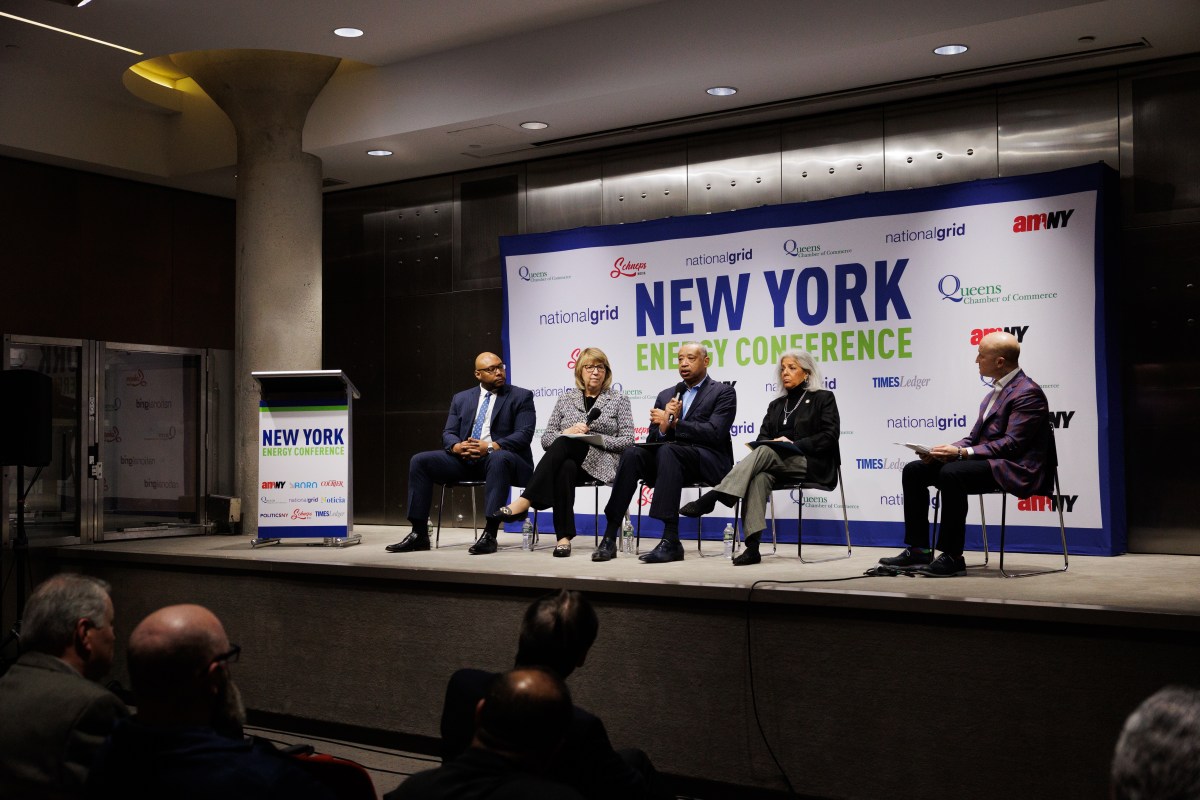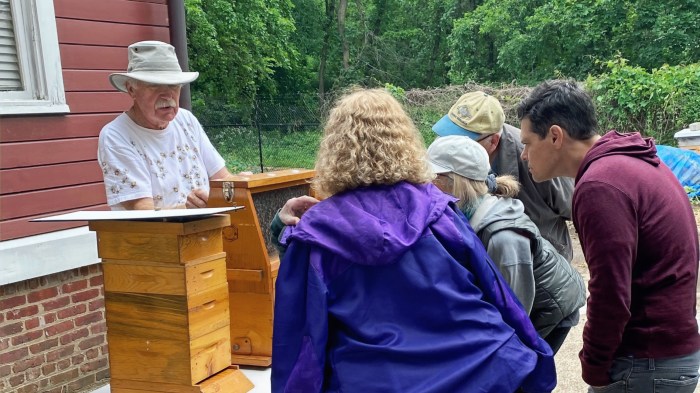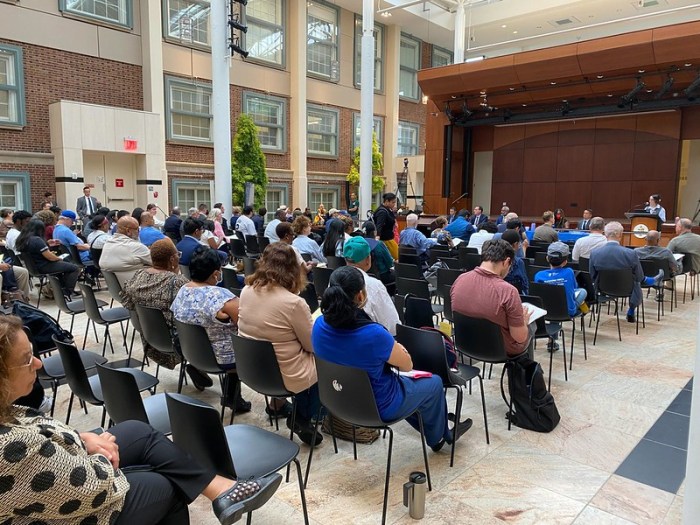At the New York Energy Conference organized by Schneps Media, key figures in the Queens community gathered to discuss the opportunities and challenges of the ongoing transition to clean energy amid New York’s ambitious climate goals.
The event on April 10 at the Bulova Center in Astoria centered around two panel discussions on investment, affordability, and attainability of climate change initiatives. Dozens of attendees walked away with increased knowledge of the current energy landscape to apply in their respective industries and communities.
“Clean energy is absolutely important from a climate perspective,” said keynote speaker Will Hazelip, President of National Grid Ventures in the U.S Northeast. “But it’s also about building a sustainable energy system that can last for hundreds and hundreds of years. And it’s well worth that investment.”
Hazelip shared that the transition to clean energy will be a decades-long process in which community partnerships will play a critical role. He and other speakers at the conference stressed the importance of laying the groundwork for clean energy jobs by increasing opportunities.
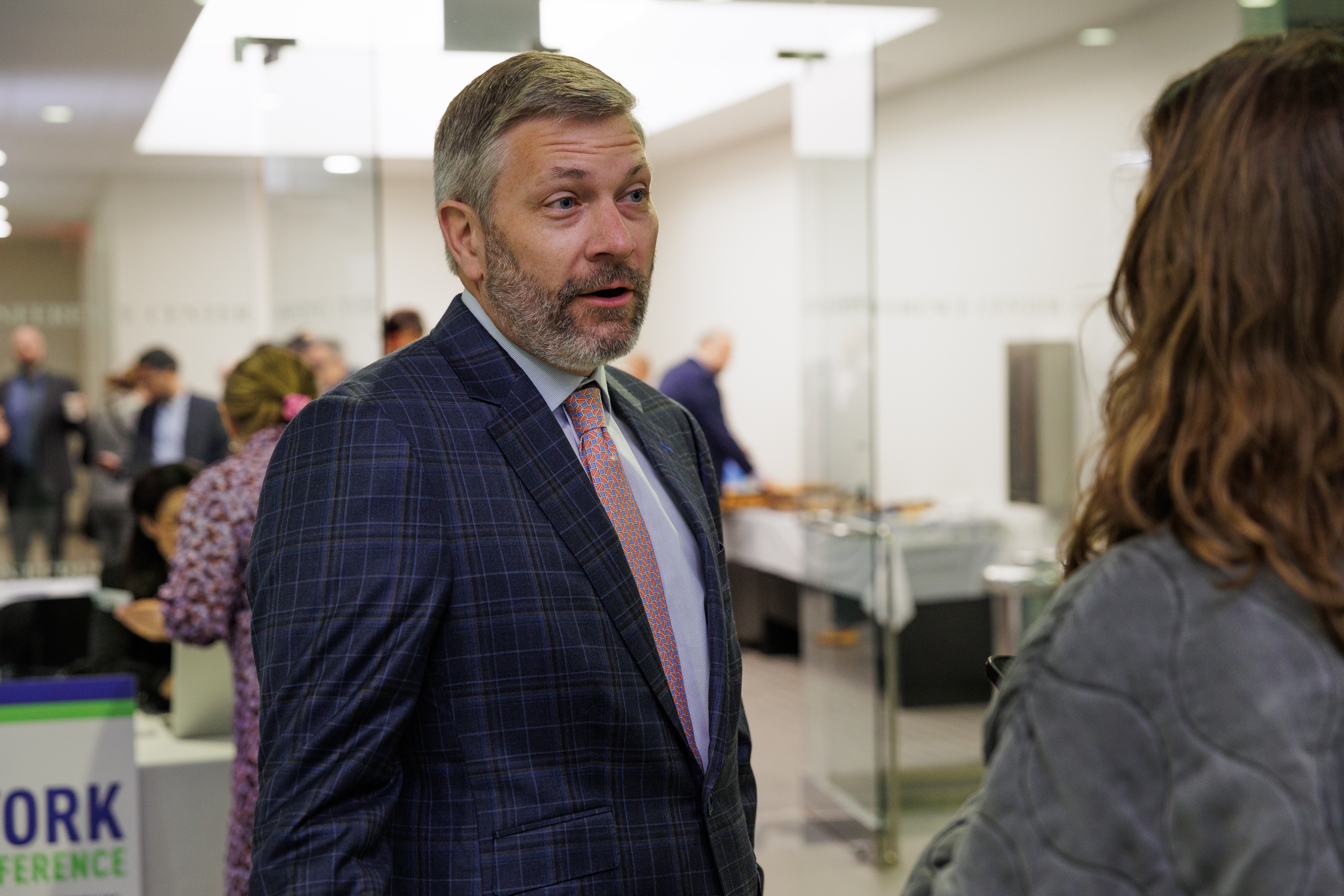
He noted that Community Offshore Wind, a joint venture between National Grid Ventures and RWE, will invest $41 million in workforce development programs. They’ve partnered with the nonprofit network United Way of New York to bring reduced childcare costs for offshore wind workers and trainees. And they’ve partnered with the YMCA to offer free swim lessons to disadvantaged youth so that they qualify for offshore clean energy jobs where swimming is a prerequisite.
While there is a broad acknowledgment that transitioning to clean energy is the right path, there is disagreement about the details and timeline of the transition. In particular, NYC Local Law 97, which seeks to bring emissions from buildings across the city to zero by 2050, is highly contested. The legislation was a key topic of discussion throughout the conference.
City Council Member Vickie Paladino, who has hosted informational town halls and introduced legislation to delay Local Law 97 by seven years, discussed its drawbacks during a panel discussion and in initial remarks.
She stood in opposition to environmental advocates who stress that time is of the essence in targeting climate change. Paladino argued that the financial repercussions on regular citizens must first be considered amid rising energy costs and the unknown stability of a fully electric grid.
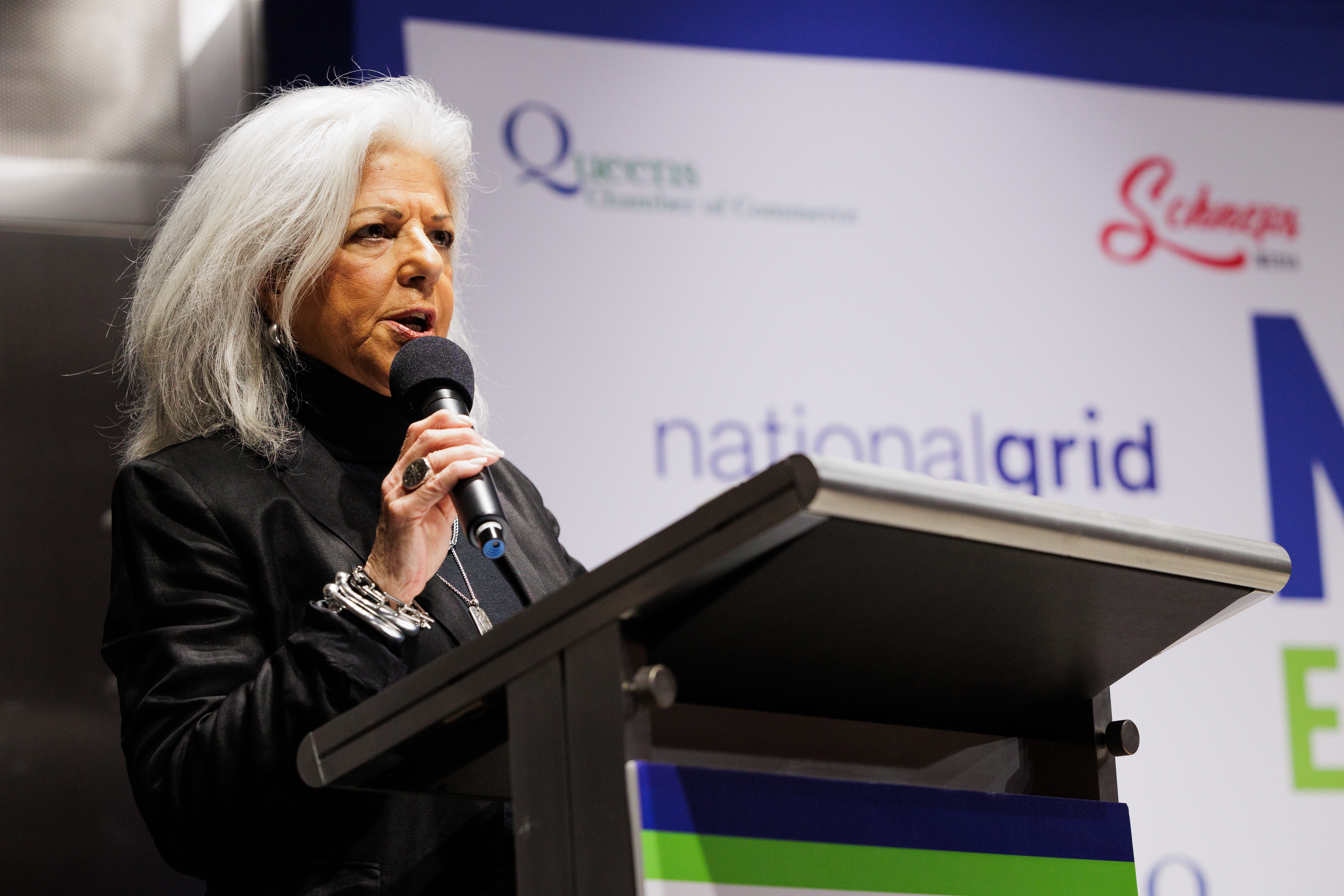
“First of all, it’s going way too fast,” said Paladido, who represents Northeast Queens. Residents in her district, which has one of the largest shares of condos and coops in the city, are facing high costs of compliance with the law. “What we’re leaving out here in all this technology talk is the human factor.”
Paladino sat on a panel with Donna Drummond, the Chief Expense Officer and Chief Sustainability Officer at Northwell Health, Ralph Cleveland, President and CEO of the American Association of Blacks in Energy and Jelani Williams, General Manager at Rochdale Village, Inc.
“Some of the issues that we’re running into are labor shortages, issues with respect to equity, in terms of who gets access to the new technology, issues of affordability, all these are things that make this a very complex problem to solve,” said Cleveland, who has spent 40 years in the energy sector. “And this is why we need everyone at the table to talk about what some of the unintended consequences of some of the policy decisions are.”
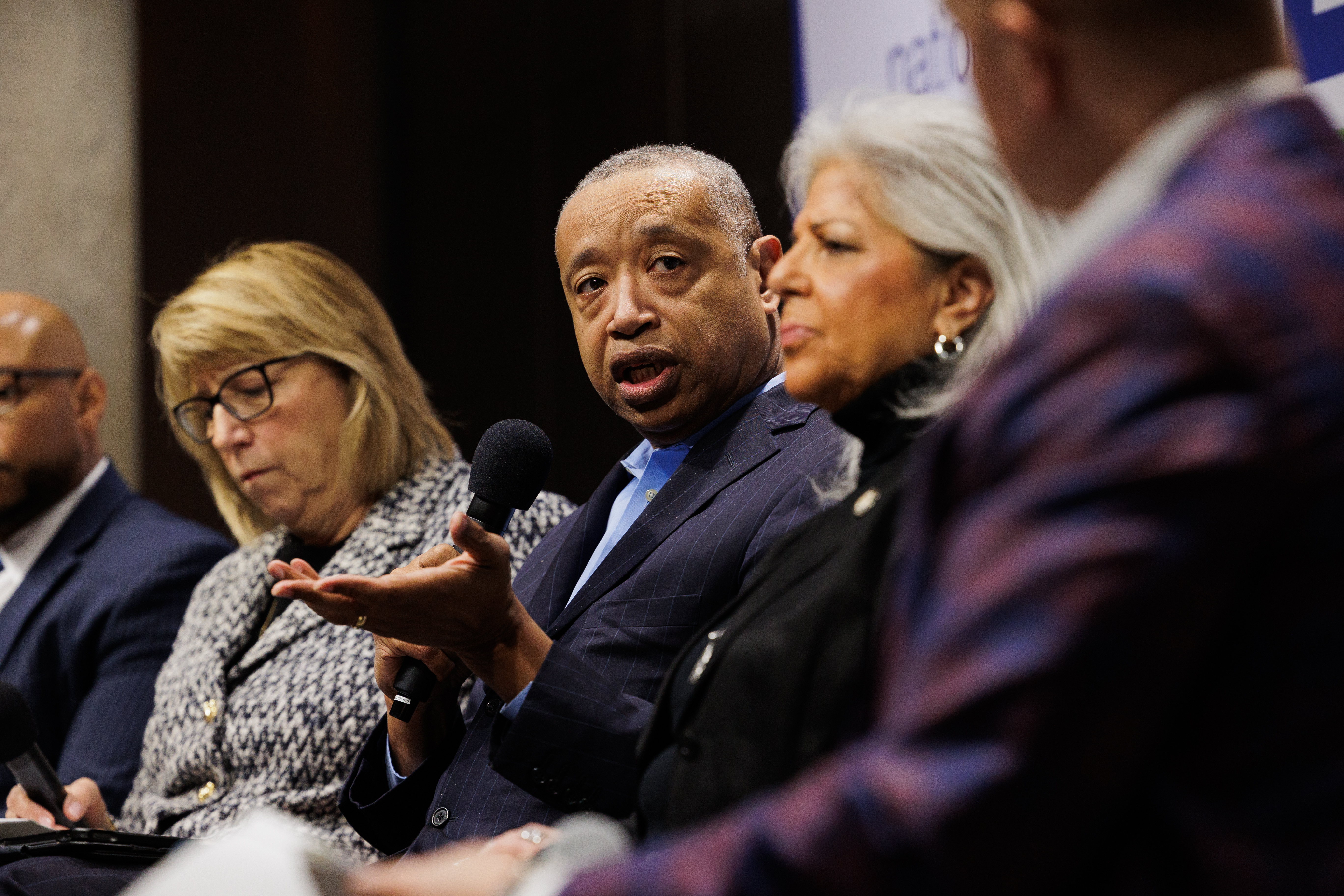
Williams, who oversees one of the largest micro green communities in the country located in Southeast Queens, discussed the unique challenges of Rochdale Village which generates its own power onsite and is not connected to the grid. He agreed with Paladino that legislation like Local Law 97, while well-intentioned, can disrupt the affordability of co-op communities like his.
“There’s got to be a more prudent pathway that doesn’t eliminate affordable housing,” said Williams, who shared that the cost of connecting to the power grid would fall on the residents without a guarantee that the existing grid could sustain increased usage.
On the same panel, Drummond discussed the initiatives that the Northwell system is taking to ensure that their buildings reduce energy consumption while also ensuring that in cases of natural disasters, their hospitals are equipped to stay up and running. She pointed out that a $10 million investment in energy-related projects has already generated over $33 million in savings and reduced energy costs.
“We take those savings, and we reinvest them in new projects,” said Drummond, pointing out that they are currently working on reducing the use of plastic supplies, such as Petri dishes, which account for 80% of their emissions.
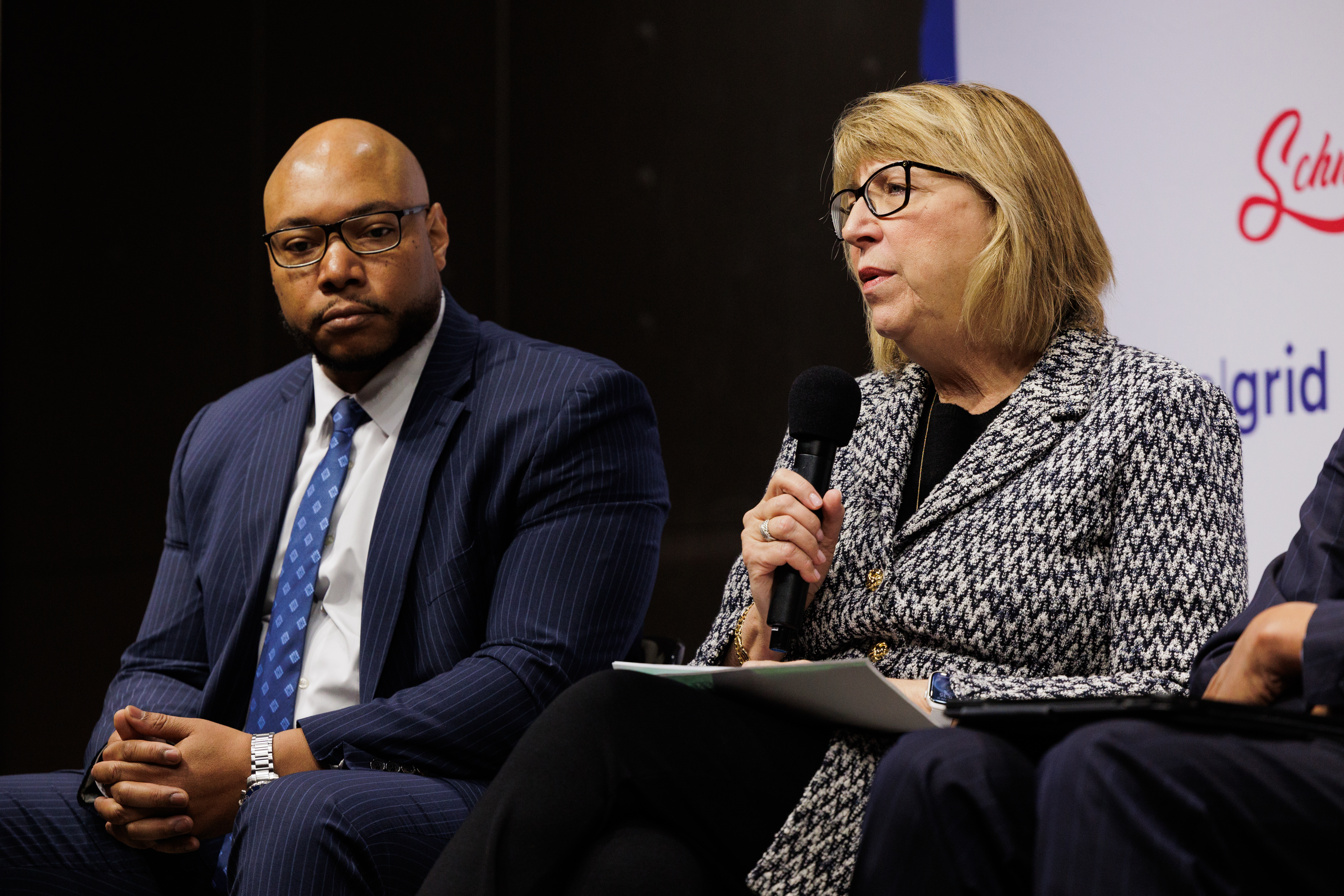
The first panel of the conference brought together business and economics leaders in the borough, who shared their perspectives on the financial impact of sustainable development. They also shared similar concerns with the second-panel participants regarding the electrical grid meeting energy consumption without power outages.
“We are very concerned about the reliability of the electric grid,” said Henry Wan, President and CEO of Wan Group, who sat on the first panel. “The power generation and the demand used have changed. This will require us to declare a reliability need in order to avoid outages and disruption to New York’s power supply.”
The panelists pointed out Jamaica as an example of a neighborhood set to see an increase in energy consumption as new developments continue to rise. Aron Kurlander, the Director of Economic Development & Chief Lending Officer at Greater Jamaica Development Corporation noted that small businesses in the area are also in limbo with what the clean energy transition will mean for their overall costs.
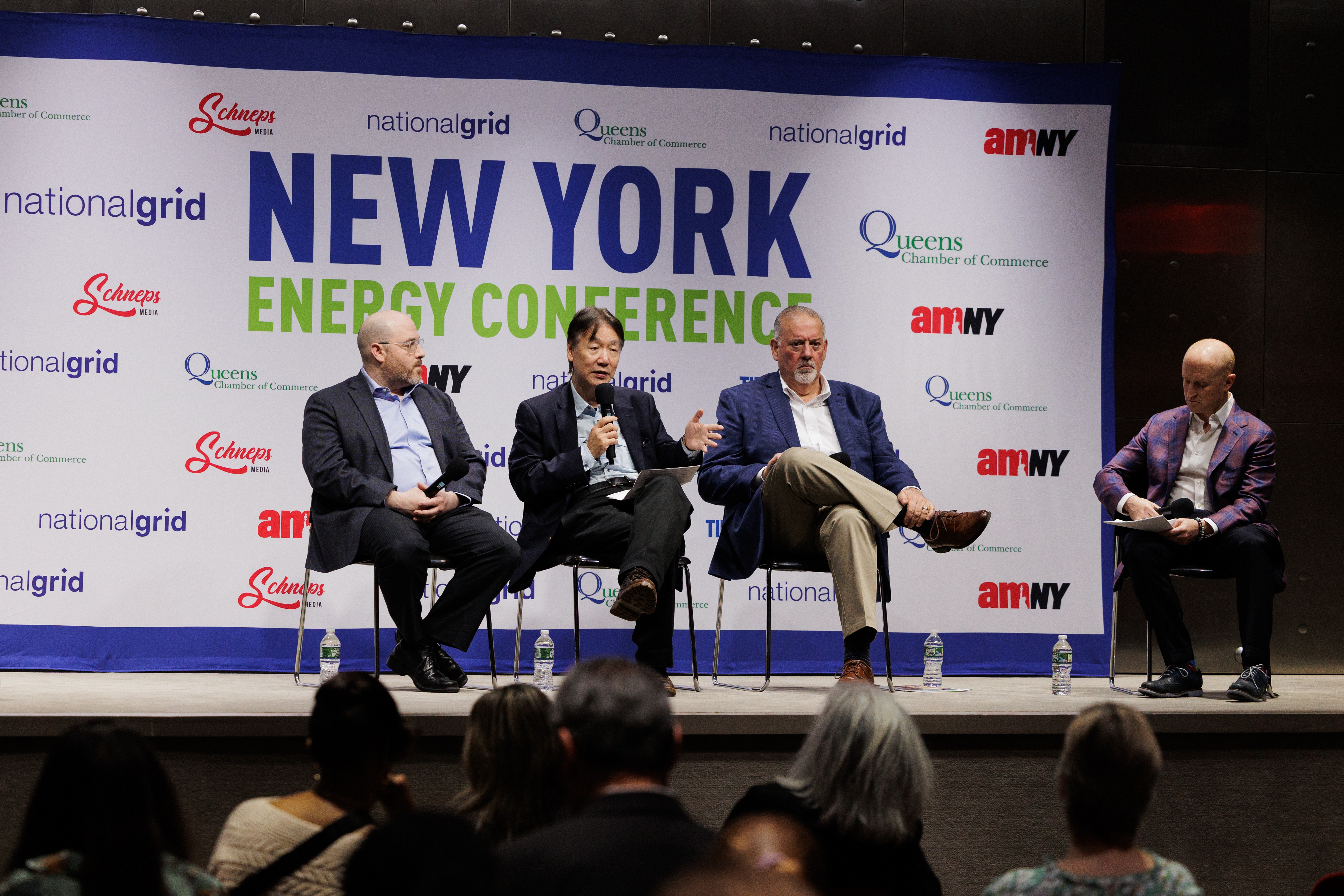
Tom Grech, President of the Queens Chamber of Commerce, added that the chamber’s energy and environmental committee is already working to help businesses save costs as they work towards compliance with Local Law 97. He said that while the climate initiative is a noble cause, he agrees that there has been a lack of discussion on the actual cost of compliance, which is falling on small businesses as well as homeowners, as Paladino pointed out.
“I look at it as it’s the law of the land. We can fight it, or we can embrace it,” said Tom Gretch, President of the Queens Chamber of Commerce on LL97. “Let’s find a way to do it so we don’t go broke in the process.”
Despite the concerns raised by the panelists on issues emerging with the transition to clean energy, there was no disagreement that addressing climate change head-on is the necessary path forward. They remain optimistic that solutions can be reached with partnerships, increased knowledge, and discussions with those in other sectors.
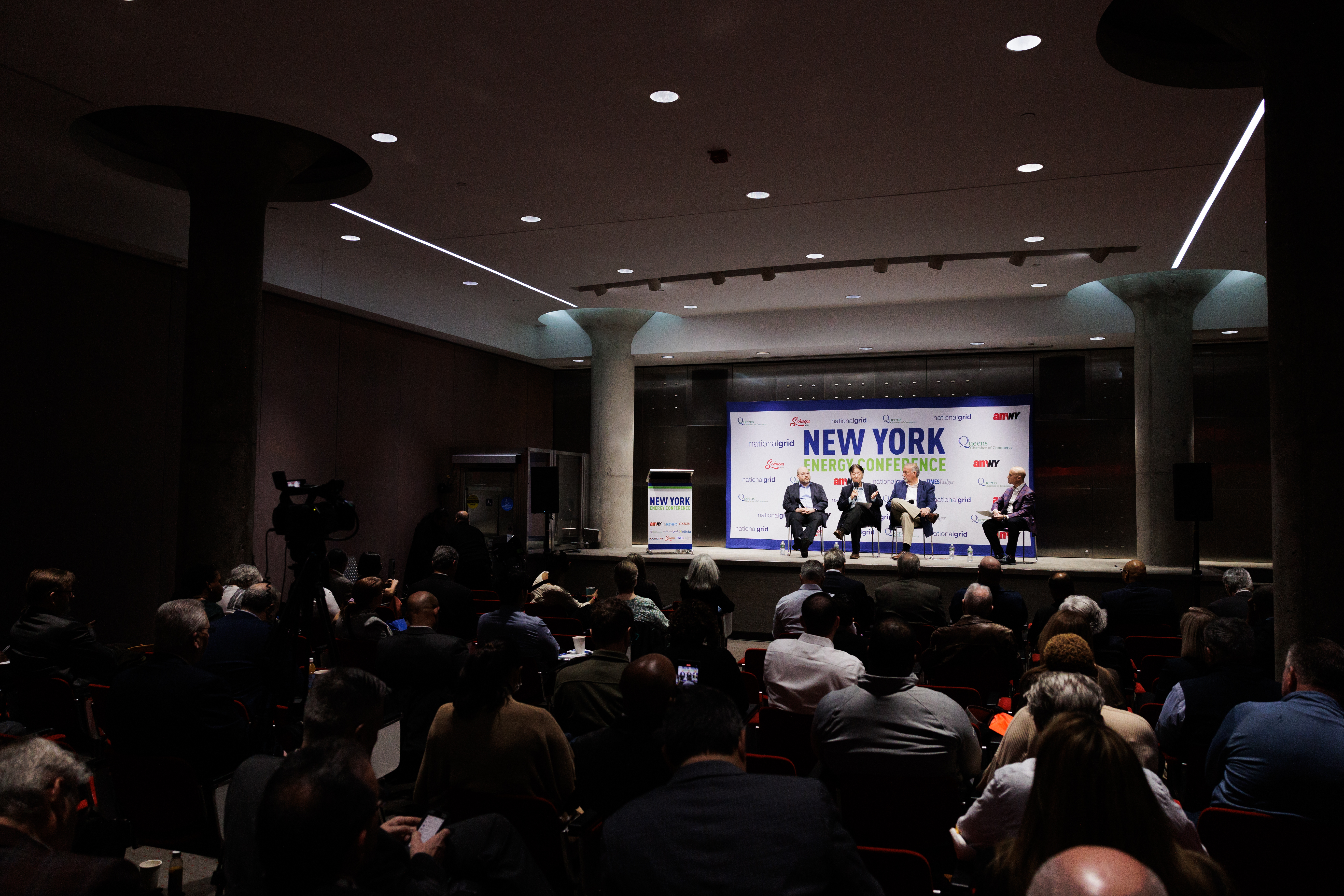
“To transition, it takes a village,” said Bryan Grimaldi, VP of Corporate Affairs at National Grid. “It’s going to take utilities, it’s going to take advocacy groups, it’s going to take policymakers and lawmakers to come together to find reasonable policy solutions for an orderly transition.”
The event was organized by Schneps Media with the sponsorship of National Grid and the Queens Chamber of Commerce.

